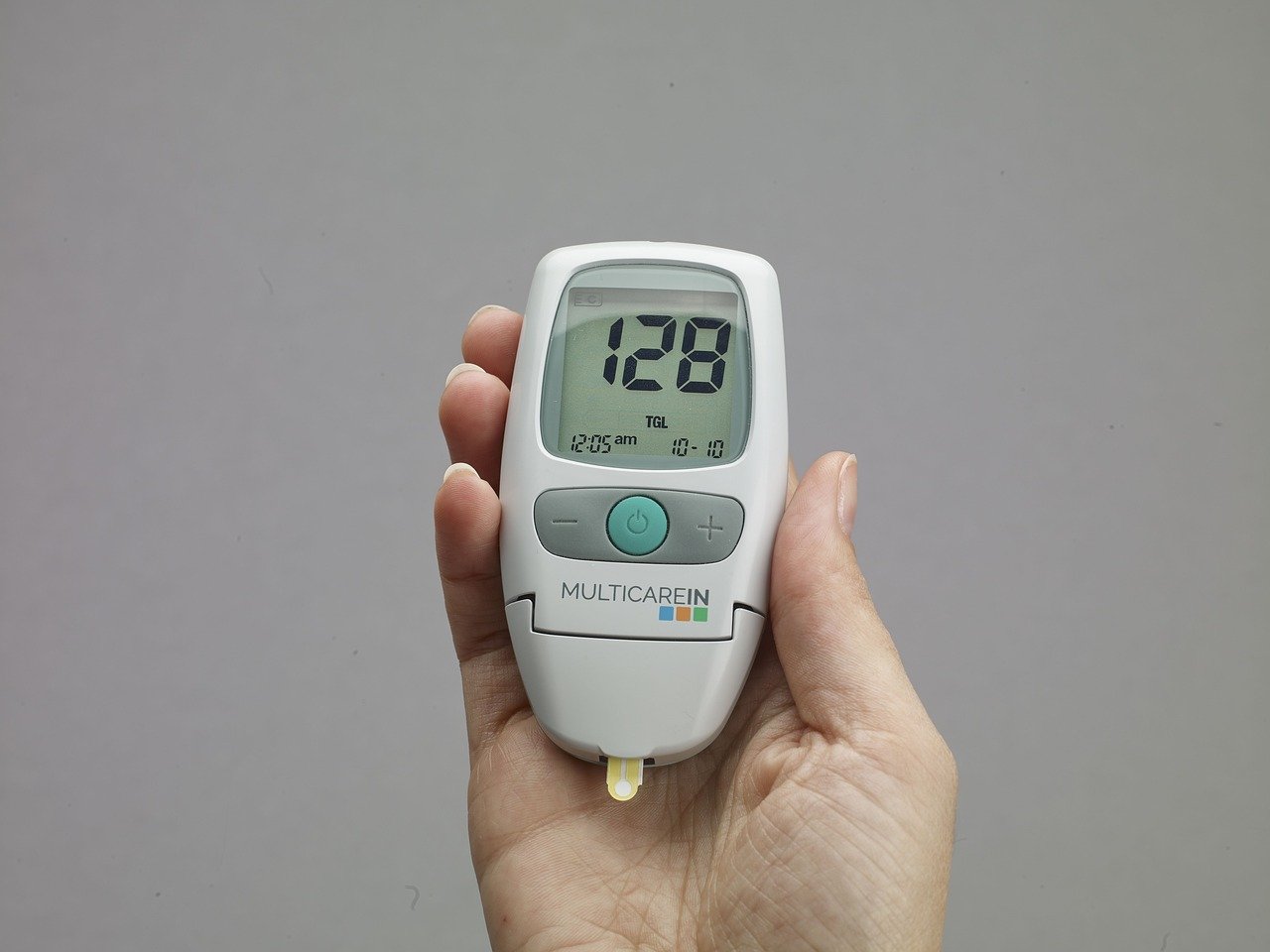Exploring the Connection Between Stress and Blood Sugar Levels in diabetics
#ez-toc-container {
background: #f9f9f9;
border: 1px solid #aaa;
border-radius: 4px;
-webkit-box-shadow: 0 1px 1px rgba(0, 0, 0, .05);
box-shadow: 0 1px 1px rgba(0, 0, 0, .05);
display: table;
margin-bottom: 1em;
padding: 10px 20px 10px 10px;
position: relative;
width: auto;
}
.ez-toc-container-direction {
direction: ltr;
}
.ez-toc-list-level-1 a{
font-weight:bold;
}
Table of Contents
1. Introduction to the Connection Between Stress and Blood Sugar Levels in Diabetics
Diabetes remains a significant public health concern worldwide, affecting millions of individuals across various age groups. This chronic condition, characterized by elevated blood sugar levels, poses numerous health challenges and necessitates comprehensive management strategies. Consequently, gaining a deeper understanding of the factors that influence diabetes management is crucial. One such critical element is stress, a common but often overlooked influencer of blood sugar levels. In this introduction, we will explore the connection between stress and blood sugar levels in diabetics, setting the stage for a deeper dive into the complex interplay between mental well-being and diabetes management.
Brief Overview of Diabetes and its Global Impact
Diabetes is a metabolic disorder characterized by the body’s inability to effectively regulate blood sugar levels. This condition can be categorized primarily into three types: Type 1 diabetes, Type 2 diabetes, and gestational diabetes. Each type has its own distinct causes and implications:
- Type 1 Diabetes: Often diagnosed in childhood, this form occurs when the body’s immune system mistakenly attacks insulin-producing beta cells in the pancreas. The lack of insulin production leads to increased blood sugar levels.
- Type 2 Diabetes: More prevalent among adults, this type is associated with insulin resistance, where the body’s cells do not respond effectively to insulin. Type 2 diabetes is closely linked to lifestyle factors such as obesity and physical inactivity.
- Gestational Diabetes: Occurring during pregnancy, this form of diabetes can affect both the mother’s and baby’s health, potentially leading to complications during delivery.
The global impact of diabetes is staggering. According to the International Diabetes Federation, approximately 537 million adults were living with diabetes in 2021, and this number is projected to rise to 643 million by 2030. Diabetes not only affects individuals’ quality of life but also imposes a substantial burden on healthcare systems worldwide due to its association with severe complications such as heart disease, kidney failure, neuropathy, and vision loss.
Explanation of How Stress Influences Bodily Functions
Stress is an everyday experience, arising from various sources such as work pressures, financial troubles, relationships, or health concerns. When an individual encounters stress, the body undergoes a series of physiological reactions, collectively known as the “stress response.” This response is primarily governed by the hypothalamic-pituitary-adrenal (HPA) axis and the autonomic nervous system.
- The HPA Axis Activation: Stress triggers the release of corticotropin-releasing hormone (CRH) from the hypothalamus, leading to the secretion of adrenocorticotropic hormone (ACTH) from the pituitary gland. This cascade results in the production of cortisol, the primary stress hormone, by the adrenal glands. Cortisol plays a critical role in regulating various bodily functions, including metabolism, immune response, and blood sugar levels.
- The Sympathetic Nervous System (SNS) Activation: Stress also activates the SNS, leading to the release of adrenaline and noradrenaline. These hormones prepare the body for a “fight or flight” response, increasing heart rate, blood pressure, and energy availability.
While acute stress responses are generally beneficial for managing short-term challenges, chronic stress can result in adverse effects, particularly for individuals with diabetes. Understanding how stress impacts bodily functions is vital for comprehending its role in diabetes management.
Importance of Understanding Stress’s Role in Diabetes Management
The relationship between stress and diabetes is intricate, with stress influencing diabetes management in multiple ways:
- Impact on Blood Sugar Levels: Stress hormones such as cortisol can increase blood glucose levels by promoting gluconeogenesis in the liver and reducing insulin sensitivity. Consequently, chronic stress can exacerbate hyperglycemia in diabetics.
- Behavioral and Lifestyle Factors: Stress can lead to unhealthy coping mechanisms, such as poor dietary choices, sedentary behavior, and inadequate medication adherence, further complicating diabetes management.
- Mental Health Considerations: The psychological burden of managing a chronic condition like diabetes can contribute to increased stress levels. Conversely, persistent stress and anxiety can negatively affect mental well-being, creating a vicious cycle that complicates diabetes management.
Recognizing the role of stress in diabetes management is critical for developing effective treatment plans. By incorporating stress-reduction techniques such as mindfulness, relaxation exercises, and counseling, healthcare providers can offer comprehensive support to individuals with diabetes. Ultimately, a holistic approach that addresses both physiological and psychological factors can empower diabetics to maintain better control over their blood sugar levels and improve their overall quality of life.
This introduction highlights the significance of exploring the connection between stress and blood sugar levels in diabetics. As we delve deeper into this subject, it becomes evident that understanding the intricate interplay between stress and diabetes management can significantly enhance the effectiveness of treatment strategies and improve long-term health outcomes for individuals with diabetes.

2. How Stress Affects Blood Sugar Levels
Stress is a ubiquitous element of everyday life, but its effects on the body, particularly on blood sugar levels, are often underestimated. Understanding the physiological mechanisms by which stress influences blood sugar can help manage conditions such as diabetes more effectively.
Physiological Response to Stress: The Fight or Flight Mechanism
When the body encounters stress, whether physical or psychological, it triggers a rapid response known as the “fight or flight” mechanism. This response is designed to prepare the body to either confront or escape the stressor. During this process, several physiological changes occur:
- The adrenal glands release stress hormones such as adrenaline and cortisol.
- The heart rate increases to pump more blood to vital organs and muscles.
- Breathing rate accelerates to supply more oxygen to the body.
- Energy stores in the form of glucose are released into the bloodstream for quick energy accessibility.
While this response is crucial for immediate survival, chronic stress can lead to persistently elevated blood sugar levels, posing significant health risks.
Impact of Stress Hormones on Glucose and Insulin
The body’s response to stress involves several stress hormones, with cortisol playing a key role. Here’s how cortisol influences glucose production and insulin sensitivity:
- Cortisol and Glucose Production:
Cortisol stimulates the liver to produce more glucose, a process known as gluconeogenesis. This increase in glucose production is intended to provide the body with a readily available energy supply to handle stressful situations. - Insulin Sensitivity:
High levels of cortisol can affect the body’s sensitivity to insulin, the hormone responsible for regulating blood sugar levels. Increased cortisol levels can lead to insulin resistance, whereby the body’s cells do not respond effectively to insulin, resulting in elevated blood sugar levels.
By understanding the effects of cortisol, individuals can better anticipate and manage blood sugar fluctuations linked to stress.
Scientific Evidence Linking Stress to Elevated Blood Sugar Levels
A growing body of scientific studies confirms the relationship between stress and elevated blood sugar levels. Here are some key findings from recent research:
- Study on Chronic Stress and Diabetes Risk:
A study published in the Journal of Clinical Endocrinology & Metabolism found that chronic stress is associated with an increased risk of type 2 diabetes. The research highlighted that individuals exposed to prolonged stress had higher levels of cortisol, which contributed to insulin resistance and higher blood sugar levels. - Effects of Acute Stress on Blood Glucose Levels:
Another study in Diabetes Care explored the immediate effects of acute stress on individuals with type 1 and type 2 diabetes. Results indicated significant increases in blood glucose levels following exposure to stress, underscoring the need for stress management strategies in diabetes care. - Meditation and Stress Reduction:
Research published in Psychosomatic Medicine revealed that mindfulness meditation effectively reduces stress-induced cortisol levels and improves blood sugar regulation. Participants engaging in regular meditation sessions exhibited more stable glucose levels and improved insulin sensitivity.
These studies emphasize the importance of implementing stress-reduction techniques to maintain healthier blood sugar levels and mitigate diabetes risks.
In conclusion, the physiological impacts of stress, particularly the role of hormones like cortisol, significantly affect blood sugar levels. By acknowledging these mechanisms and supporting them with scientific evidence, individuals can adopt effective strategies to manage stress and maintain optimal blood sugar control. Recognizing the profound impact of stress on glucose and insulin can contribute to better health outcomes, especially for people living with or at risk of diabetes. Incorporating stress-reduction practices such as mindfulness, exercise, and relaxation techniques can be beneficial as part of a comprehensive approach to managing blood sugar levels effectively.

3. Recognizing Stress
Understanding the intricate relationship between stress and blood sugar fluctuations is crucial for individuals managing diabetes. Stress, whether stemming from lifestyle, emotional, or environmental factors, can significantly impact blood sugar levels. This segment delves into the symptoms and signs of stress-induced blood sugar changes, common stressors affecting diabetics, and the tools and techniques used to monitor these fluctuations.
Symptoms and Signs of Stress-Related Blood Sugar Changes
Stress can manifest in various physical and psychological symptoms, compounding the challenges faced by those with diabetes. Recognizing these signs is crucial for effective management:
- Unexpected Fatigue: Even with sufficient rest, stress can cause persistent exhaustion, which affects daily activities.
- Dehydration and Increased Thirst: Elevated blood sugar levels can lead to frequent urination, which increases the risk of dehydration.
- Headaches: Tension headaches or migraines may arise as the body’s response to prolonged stress.
- Blurred Vision: Sudden changes in blood sugar levels can affect vision clarity.
- Mood Swings: Irritability, anxiety, or unexplained changes in mood can indicate a stress response.
- Dizziness: Fluctuating glucose levels may result in dizziness or lightheadedness.
- Changes in Appetite: Stress may cause overeating or a reduced appetite, directly affecting blood sugar management.
Acknowledging these symptoms and their potential link to stress can help individuals with diabetes take preventive measures and consult healthcare professionals for appropriate guidance.
Common Stressors for Individuals with Diabetes
Several factors can induce stress in individuals with diabetes, necessitating an understanding of potential triggers:
- Lifestyle Stressors:
- Work-Related Pressures: Tight deadlines, job insecurity, or challenging workplaces can exacerbate stress.
- Physical Inactivity: A sedentary lifestyle may contribute to increased stress levels and complicate diabetes management.
- Irregular Eating Patterns: Skipping meals or irregular eating schedules can disturb blood sugar balance.
- Emotional Stressors:
- Anxiety and Depression: Emotional distress can lead to poor diabetes management practices.
- Family Dynamics: Stress within familial relationships can impact mental health and stress management.
- Personal Loss or Grief: Coping with personal losses may magnify stress and its effects on health.
- Environmental Stressors:
- Noise Pollution: Constant exposure to loud sounds or noise can elevate stress hormones.
- Extreme Weather Conditions: Inclement weather can restrict physical activity and contribute to stress.
- Urban Living Conditions: Living in crowded areas with inadequate resources can heighten stress levels.
Identifying and minimizing these stressors can aid effective diabetes management and overall well-being.
Tools and Techniques for Tracking Blood Sugar Levels in Response to Stress
Accurate tracking of blood sugar levels is imperative for individuals with diabetes to recognize the impact of stress. Here are some effective tools and methods:
- Glucose Monitoring Devices: Regular use of devices like glucometers can provide real-time insights into blood sugar levels.
- Continuous Glucose Monitors (CGMs): These devices offer comprehensive data by continuously tracking glucose levels and generating reports to monitor trends related to stress episodes.
- Mobile Apps: Numerous apps are available to help log glucose readings, track stress levels, and set reminders for monitoring.
- Journaling: Maintaining a detailed journal of daily activities, food intake, and emotional states can help identify patterns between stress and blood sugar changes.
- Stress Management Techniques: Incorporating stress-reduction methods such as mindfulness, meditation, or yoga can help minimize stress impact on glucose levels.
Utilizing these tools not only aids in monitoring but also empowers individuals to take proactive steps in managing their diabetes effectively in the face of stress.
Understanding and managing stress-related blood sugar fluctuations is an ongoing process. By recognizing symptoms early, identifying common stressors, and leveraging modern tools and techniques, individuals with diabetes can significantly mitigate the adverse effects of stress, leading to improved health outcomes and quality of life.
4. Effective Strategies for Managing Stress to Maintain Optimal Blood Sugar Levels
Stress is a natural part of life, but for diabetics, managing stress is crucial to maintaining optimal blood sugar levels. High stress can lead to hormonal changes that affect blood sugar. This outline presents effective strategies that focus on lifestyle changes, dietary considerations, and the importance of support systems.
Effective Strategies for Managing Stress to Maintain Optimal Blood Sugar Levels
Lifestyle Changes to Reduce Stress
Implementing daily lifestyle changes can significantly reduce stress levels, which is essential for managing blood sugar levels effectively. Below are some strategies that can make a real difference:
- Regular Exercise: Engaging in physical activity is one of the most effective ways to combat stress. Exercise lowers stress hormones and boosts endorphins, improving mood and helping to maintain healthy blood sugar levels. Activities such as walking, jogging, yoga, or any form of cardiovascular exercise can be beneficial.
- Mindfulness Practices: Mindfulness and meditation can greatly reduce stress. Practices such as deep breathing exercises and meditation encourage relaxation and mental clarity. Spending a few minutes each day on mindfulness can improve emotional well-being and help in stabilizing blood glucose.
- Scheduling & Time Management: Planning and organizing your day can reduce feelings of being overwhelmed by daily tasks. Prioritizing activities and setting limits can help keep stress at bay.
Dietary Considerations and Their Role in Stress and Blood Sugar Management
Diet plays a crucial role in managing stress and blood sugar levels. Here’s how certain dietary changes can help:
- Balanced Nutrition: Eating a well-balanced diet with adequate carbohydrates, fats, and proteins is vital. The timing of meals affects blood sugar levels, and thus, regular meal patterns can improve glucose control.
- Low Glycemic Foods: Consuming foods with a low glycemic index can prevent blood sugar spikes, which are often stress-inducing. Opt for whole grains, legumes, vegetables, and fruits.
- Hydration: Adequate water intake ensures that bodily functions work optimally, which includes maintaining stable blood sugar levels. Dehydration can cause stress-related complications.
- Avoid Stimulants: Reduce or eliminate caffeine and alcohol as they can heighten anxiety levels and adversely affect blood sugar control. Herbal teas or water can be a better choice.
Importance of Support Systems and Stress Management Programs for Diabetics
Having a reliable support system and access to stress management programs is invaluable, especially for those living with diabetes:
- Family and Friends: A supportive network of family and friends provides emotional encouragement and practical help in managing everyday tasks, which can lessen stress.
- Diabetes Education Programs: Participating in these programs can not only provide vital information but also help connect with others facing similar challenges. Interaction in such settings reduces feelings of isolation and stress.
- Counseling Services: One-on-one therapy or group sessions with a counselor can be beneficial. Professional guidance helps in identifying triggers and developing coping strategies.
- Community Groups: Being part of a community group or attending local meetups related to diabetes can foster a sense of belonging and shared experiences. Support groups often share strategies that others find effective.
Incorporating these stress management strategies into daily life can significantly improve the quality of life and help in maintaining optimal blood sugar levels for diabetics. By focusing on lifestyle changes, being mindful of dietary choices, and seeking support, managing stress becomes more attainable, ultimately fostering better health outcomes.







